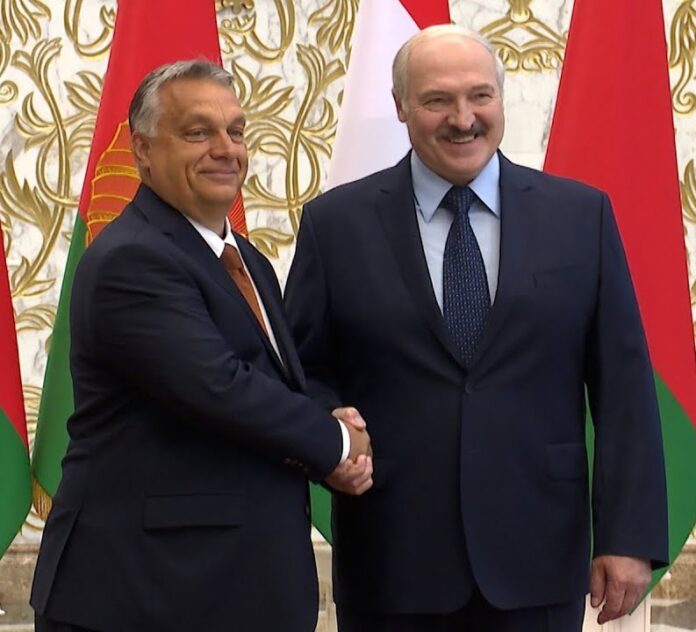During a meeting with Hungarian Foreign Minister Peter Szijjarto, the leader of Belarus, Alexander Lukashenko, has invited Hungary’s Prime Minister, Viktor Orbán, to visit his country. Orbán’s press chief said he would consider the invitation after returning from an upcoming European Union summit in Brussels.
Belarus has been facing a growing sense of isolation due to the government’s continuous crackdown on dissent and its support of Vladimir Putin‘s war with Ukraine. The country has been subjected to a series of sanctions by the West since 2020, following Lukashenko’s controversial win of his sixth term in an election that the opposition and the West condemned for being rigged.
The election result led to an unprecedented wave of mass protests, which were met with brutal force by Lukashenko’s government and law enforcement agencies, leading to the arrest of more than 35,000 people and thousands of violent beatings. Belarus’s isolation has been further exacerbated by Russia’s use of the country, its long-time and dependent ally, as a base to send troops and missiles into Ukraine in 2022.
In recent news, Lukashenko has expressed his willingness to engage in a dialogue with European countries and has invited Orbán to discuss “important matters”. Orbán was in Belarus again on June 5, 2020, for a meeting with Aleksandr Lukashenko.
Lukashenko has been calling for normalising Belarus’ relations with EU member nations. Currently, Hungary is the only EU country that maintains communication with Belarus and can act as an intermediary between Minsk and the 27-nation bloc, which has imposed sanctions on dozens of Belarusian officials.
In February of this year, Hungarian Foreign Minister Peter Szijjarto visited Belarus, becoming the first high-ranking European official to do so in 2020. Szijjarto is known for his frequent communication with Russian officials and support of the Kremlin. Since the Russian invasion of Ukraine in February 2022, he has visited Moscow five times, with his most recent visit being on October 12th. On September 22nd, Szijjarto stated in an interview with the Russian state news agency TASS that he believed imposing new sanctions on Russia would be “unnecessary” and would do more harm to Europe than to Russia.
Belarus opposition leader Sviatlana Tsikhanouskaya criticised Szijjarto’s two visits to Minsk and has called on the EU to increase sanctions against Lukashenko’s government until the release of about 1,500 political prisoners, including the 2022 Nobel Peace Prize winner Ales Bialiatski, a well-known human rights activist.

